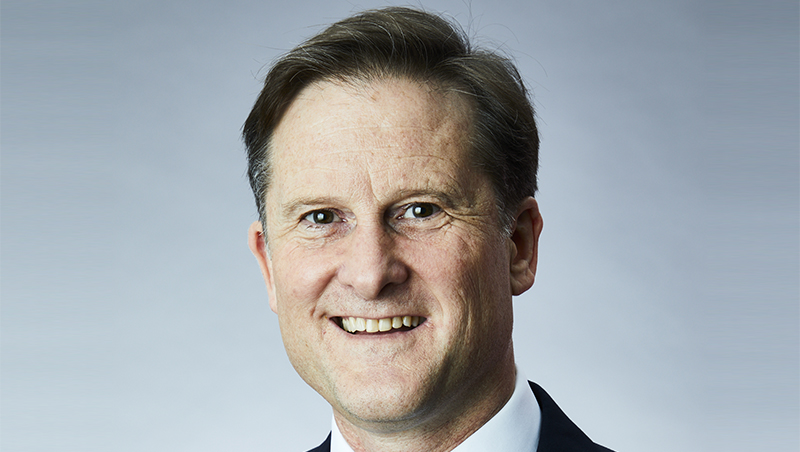Hargreaves Lansdown has been hit with a lawsuit that could be worth millions following allegations that the platform actively promoted the Woodford Equity Income Fund (Weif) to investors despite knowing about the liquidity issues that ultimately proved its undoing.
Claims management company RGL Management is arguing that Hargreaves knew of the fund’s problems as early as November 2017, nearly two years before it collapsed in 2019, but continued to include it on its buy list. Particular attention is being paid to the platform’s relationship with Woodford Investment Management, RGL said.
A claim was filed in London’s high court on 14 October on behalf of 3,200 investors.
In a Tweet from 17 October, RGL stated it believes “the FCA’s consideration of a £306m redress or penalty reflects an average claim value significantly below what [our] legal team believes an average claim to be worth”.
On its website, RGL said claims would be made for losses sustained directly as a result of the collapse of the fund, as well as for “loss of opportunity” from missing out on investing elsewhere.
If successful, investors will pay a ‘success fee’ equivalent to 25% of their compensation plus VAT to RGL. If unsuccessful, they will pay nothing.
Portfolio Adviser reached out to Hargreaves Lansdown but the firm declined to comment.
From a peak of around £10bn, the fund’s market capitalisation had fallen to £3.5bn when it was suspended, and valuations have shrunk considerably since then, jeopardising investors’ repayments.
Link Fund Solutions, the authorised corporate director of Weif, is also facing claims from RGL, according to The Guardian. This follows legal action taken by law firms Leigh Day and Harcus Parker which jointly filed mismanagement claims against Link in June.
See also: Woodford fund drops £31.2m from a single holding
Hargreaves CEO steps down
Hargreaves also announced this morning that its CEO of six years, Chris Hill (pictured), has decided to retire. The search for his successor has begun, and Hargreaves has said that Hill will remain in place until one is found.
Hill was appointed as CEO in April 2017, having joined as CFO February 2016 from IG.
Deanna Oppenheimer, Hargreaves Lansdown chair, said: “Chris has successfully led the company through a period of significant change. He is leaving HL as a stronger company, with a clearly defined strategy that the board fully supports. Having started the implementation of the next phase of the company’s growth, Chris has decided it is time to pass the reins to a new CEO to continue to execute on this strategy and build on our market leading proposition. The board is grateful to Chris for his leadership and looks forward to continuing to work with him on delivering the strategy and a successful handover next year.”
Hill added: “I have been privileged to lead the company over the last six years through a period of growth and also an unprecedented time of change. I set in train a comprehensive strategy to ensure the company remains at the forefront of wealth management, including providing clients with the best digital tools. Having put in place strong foundations that are already delivering results, including an exceptional leadership team, it will be time after a thoughtful transition to hand over to my successor to take the company through the next phase of embedding this strategy.”
Early trading saw Hargreaves’ share price drop over 7% by 10.30am to hit £7.50. It recovered some ground in the course of the morning, however, to land at £7.68 by noon, but that was still 5.2% below its open of £8.10 per share.
Hargreaves’ Q1 results show solid performance
The tumult of the previous few days has perhaps diverted attention from what has been a reasonably strong first financial quarter for Hargreaves. The three months ending 30 September saw £700m of net investor inflows, as well as the addition of 17,000 new clients. While £1.8bn was lost as a result of poor market performance, many of its rivals have suffered more acutely across the same period.
The £700m boost came on the active savings and self-invested personal pension (Sipp) side, with the former reaching AUA of £5.3bn in the period.
In all, Hargreaves’ AUA fell from £123.8bn to £122.7bn in the three months to 30 September 2022, a drop of just over 1%.
In addition, client and asset retention were both up, albeit marginally, in the last full year to 30 September, at 92.2% and 91.9% respectively.
Hill said: “The impact of the challenging macroeconomic and geopolitical backdrop on asset values, client confidence and propensity to invest has been seen across our industry. Against this backdrop we have delivered £0.7bn of net new business and welcomed a further 17,000 net new clients in the quarter, reflecting both the diversified nature of our platform and also the trust clients place in us. Our focus remains on helping new and existing clients navigate these tough times and engaging with them to help improve their financial resilience.”










